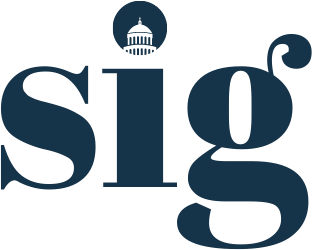By Gabbi Fisher, ’17
“You wouldn’t be here if public service wasn’t an option [for you],” Robert Mueller, the former Director of the Federal Bureau of Investigation, told students at a Stanford in Government Policy Lunch on Tuesday, March 3. Previously the Acting Deputy Attorney General of the United States, Mueller officially took the helm of the FBI one week before the September 11 attacks against the United States. He also discussed his own career path in public service as a public litigator-turned-bureau director.
Mueller presided over the FBI during a significant change in mission and protocol. Before the tragic events of 9/11, the FBI focused on collecting evidence to present in court against domestic offenders. After the attacks, the FBI took on a proactive stance: how would the bureau prevent such attacks in the future?
Today, according to Mueller, the FBI is focused on counterterrorism, counterintelligence, cybersecurity, and organized crime. The issue of cybersecurity especially piques the FBI’s interest today, given increasingly aggressive attacks against the U.S. private sector. The recent attack on Sony Pictures Entertainment stoked concern about the sophistication and spread of state-sponsored hacking, and served as “an indication of a greater risk of cyberattacks,” Mueller said. He emphasized the importance of a close relationship between the U.S. government and the country’s technology sector in deploying effective cybersecurity measures.
Mueller also met with security-minded students for one-on-one advising sessions, giving them advice informed by his decades of public service.
